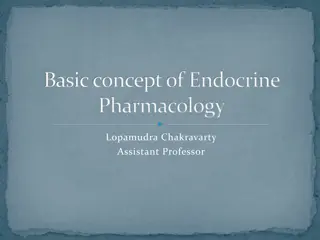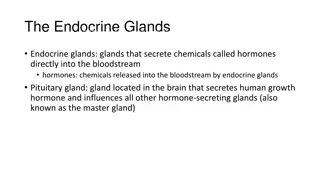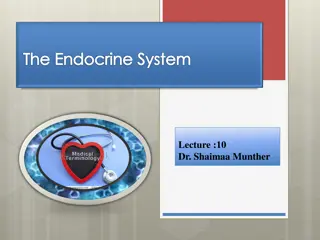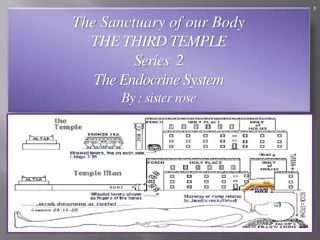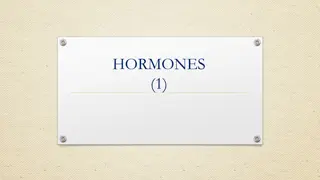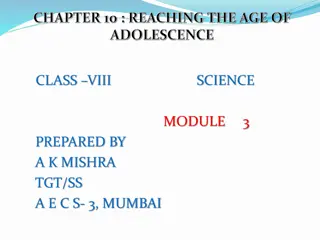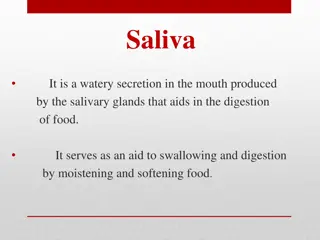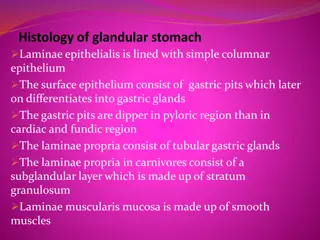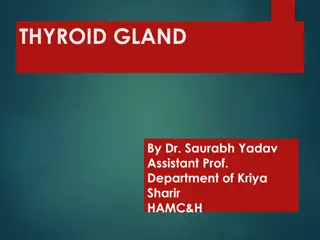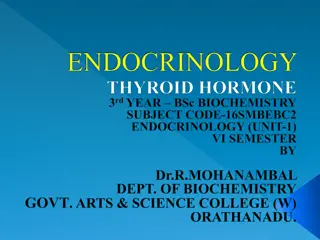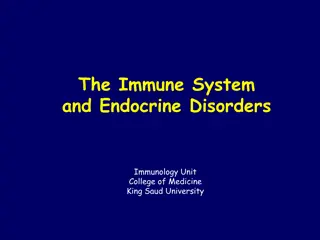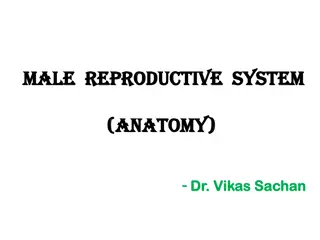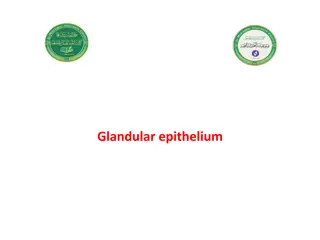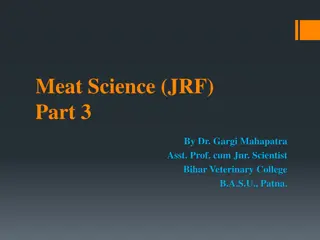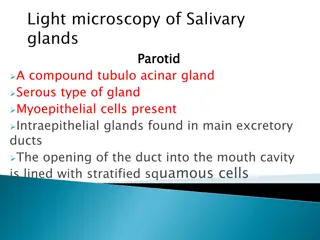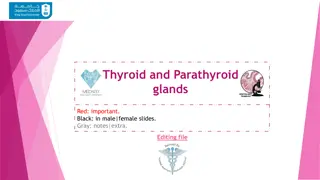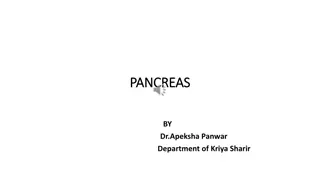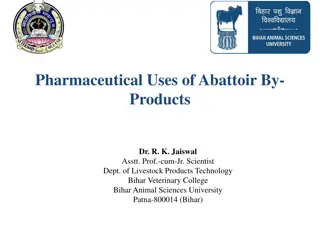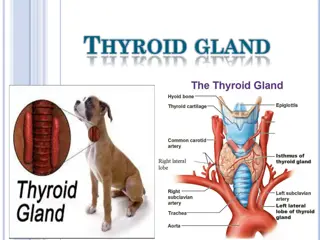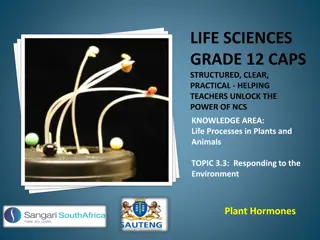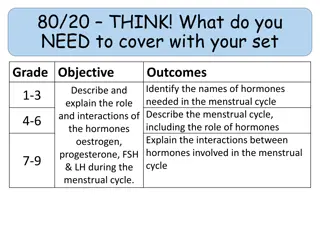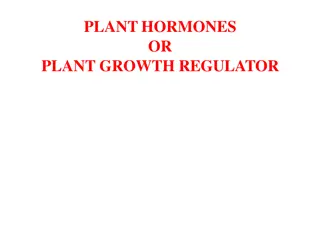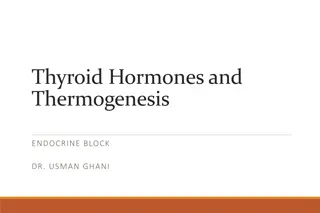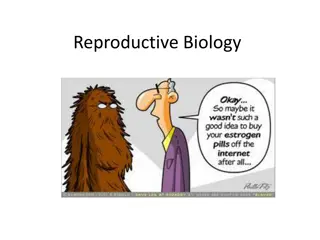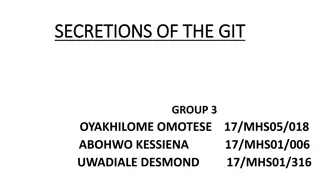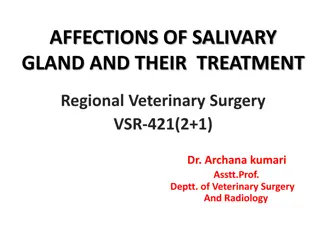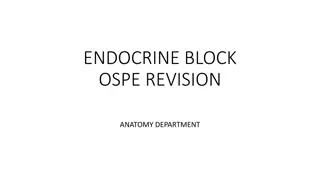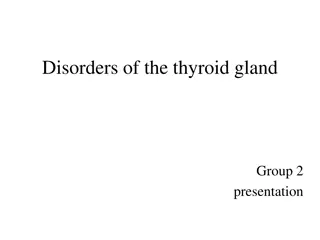Understanding the Endocrine System: Glands and Hormones in Detail
Explore the intricate details of the endocrine system, focusing on key glands like the thyroid, parathyroid, adrenal, pancreas, and thymus, their functions, hormone secretion, and role in maintaining physiological balance through hormonal regulation mechanisms.
Download Presentation

Please find below an Image/Link to download the presentation.
The content on the website is provided AS IS for your information and personal use only. It may not be sold, licensed, or shared on other websites without obtaining consent from the author. Download presentation by click this link. If you encounter any issues during the download, it is possible that the publisher has removed the file from their server.
E N D
Presentation Transcript
Anatomy& Physiology II JUTATIP TEPSUWAN MSN,RN Faculty of Nursing, NPRU
Chapter 6 The Endocrine System part 2
Study aims Describe the structure of the endocrine gland. describe the function of the endocrine gland. explain how the secretion of hormones is regulated, including the principles of negative and positive feedback mechanisms.
Thyroid gland Has right and left lobes follicular cells secretes thyroid hormones. C-cells secrete a calcitonine hormones
Thyroid gland Formation of Thyroid Hormones Iodine trapping. Thyroid follicular cells trap the iodine ions from blood into the cystosol of follicular cells. Thyroxin or tetraiodothyronine (T4) Triiodothyronine (T3) Parafollicular cells ( C cell) secrete Calcitonine hormone, that decrease the level of calcium in blood by inhibiting Osteoclast and accelerating the calcium and phosphate uptake into bone extra cellular matrix for Osteoblast.
Parathyroid gland posterior to lateral lobes of thyroid glands oxyphil cells chief cells Hormone from chief cells - parathormone is to regulate Calcium, Magnesium and phosphate - act on kidneys and regulate the excretion of these ions through urine. - helps the formation of D3 (calcitriol) a vitamin that helps in absorption of these ions through GI Tract.
Adrenal gland Suprarenal gland which above kidney Composed of two layers Outer cortex : 3 part Zona glomerulosa Aldosterone Zona fasiculata Glucocorticoids Zona reticularis - androgens Inner medulla Epinephrin norepinephrine
Pancreas Located transversely in front of the spine Exocrine gland: acinar cell secrete pancreatic juice - Endocrine gland : islets of Langerhans alpha cells secrete glucagons beta cells secrete insulin
Thymus Role in immunity. It produce a thymosine and thymopoietin hormone which promote the maturation of T cells.
Ovaries & Testes They are organs to produce gametes. They produce sperm and oocytes. Ovaries produces estrogen and progesterone Testes produces testosterone


